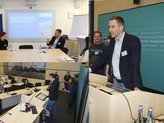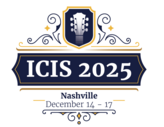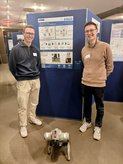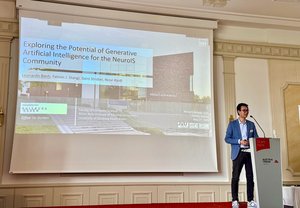Singleview
Sat, 31. May 2025
SOFTEC with Two Contributions at the NeuroIS Retreat 2025
We are pleased to announce that the Chair of Information Systems and Software Engineering (SOFTEC) will be represented with two research contributions at the NeuroIS Retreat 2025. The event will take place from May 26 to 28, 2025 in Vienna, Austria, and is considered a key platform for interdisciplinary research at the intersection of neuroscience and information systems.
In their two contributions, Leonardo Banh, Fabian Stangl, Gero Strobel and René Riedl explore the use of Generative Artificial Intelligence (GenAI) in the context of NeuroIS research:
Exploring the NeuroIS Potential for Generative Artificial Intelligence: Findings from a Literature Review.
Generative Artificial Intelligence (GenAI) is transforming human-computer interaction, shaping behavior as well as cognitive and emotional processes. This paper explores how Neuro-Information Systems (NeuroIS) measurements can be applied to the study of GenAI, addressing their role in human-AI interaction. Through a literature review, we identify 21 papers using neurophysiological measurements, including autonomic nervous system (ANS) markers (e.g., eye-tracking), brain imaging (e.g., EEG), and multimodal approaches such as combining eye tracking and EEG. Our findings highlight main research themes, including cognitive offloading, trust, and decision-making biases in human interaction with GenAI. While research on this topic is becoming more prominent, neurophysiological investigations remain limited. We anticipate that measures of brain and ANS system activity, as well as hormone measures, will play an increasing role in future empirical research on GenAI. This study contributes to the advancement of NeuroIS by providing a structured foundation for better understanding the role of GenAI in this research field.
The Role of Generative Artificial Intelligence in the NeuroIS Research Process: Applications and Opportunities
Research in Neuro-Information Systems (NeuroIS) integrates neuroscience methods with Information Systems (IS) research to advance our understanding of human-technology interactions. As neurophysiological data collection methods evolve, the analysis of large and complex data sets remains a significant challenge. Generative Artificial Intelligence (GenAI) offers new opportunities for NeuroIS by improving data analysis, experimental design, and interpretation of neural patterns. This paper systematically reviews 56 studies applying GenAI in NeuroIS and identifies five main research themes: (1) GenAI for Autonomic Nervous System Measurements, (2) GenAI for Brain Research, (3) GenAI for General Applications, (4) GenAI for Genetics, and (5) GenAI for Multimodal Approaches. Our findings highlight how GenAI improves data interpretation, integration, and processing while streamlining the use of research methods. Overall, this review underscores the transformative potential of GenAI in NeuroIS, paving the way for scalable, precise, and dynamic research methodologies in the field.
The publications will be presented during the conferences in front of the scientific community.
Latest News:
 Prof. Ahlemann @KoMet Day 2025 – Green Transformation Ruhr09.12.25
Prof. Ahlemann @KoMet Day 2025 – Green Transformation Ruhr09.12.25 SOFTEC contributes research on GenAI-based user simulation at ICIS 202504.11.25
SOFTEC contributes research on GenAI-based user simulation at ICIS 202504.11.25 SOFTEC at the Day of Computer Science 2025: Research on Compassionate AI30.10.25
SOFTEC at the Day of Computer Science 2025: Research on Compassionate AI30.10.25 New Research Associate: Deniz Baris Gölgelioglu10.10.25
New Research Associate: Deniz Baris Gölgelioglu10.10.25 IS-Project? SITM got you! Information event on Bachelor/Master Projects on 13.10.2509.10.25
IS-Project? SITM got you! Information event on Bachelor/Master Projects on 13.10.2509.10.25 Studienprojektthemen für das WS25/26 jetzt online30.09.25
Studienprojektthemen für das WS25/26 jetzt online30.09.25 SOFTEC Successfully Represented at WI 2025 in Münster and Wins Best Student Paper Award19.09.25
SOFTEC Successfully Represented at WI 2025 in Münster and Wins Best Student Paper Award19.09.25

